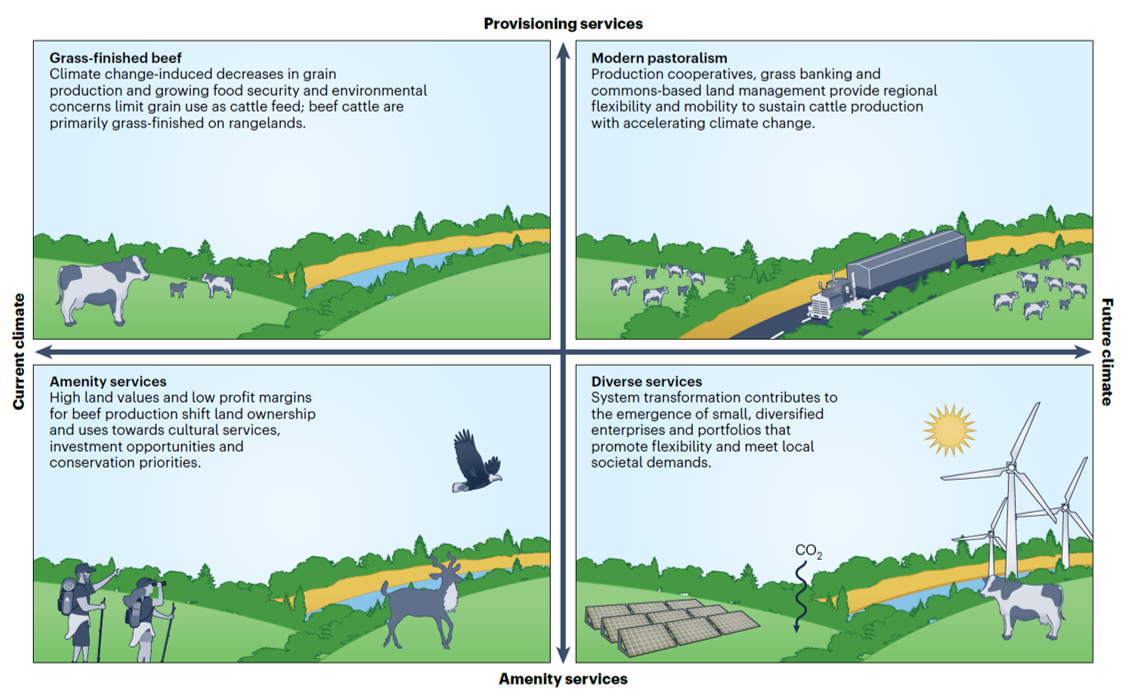September 04, 2023 | Nature Sustainability |
A recent study, led by a research team from Texas A&M University in collaboration with multiple US institutions, delves into the future of rangelands in the conterminous United States. Rangelands, which cover a significant 40% of the nation, provide vital ecosystem services to society. The study conducted a scenario assessment to explore how accelerating biophysical and societal factors might reshape the availability of these services.
The assessment revealed four distinct scenarios that could shape the future of rangelands:
- Sustaining Rural Communities: Two scenarios aim to maintain the existing rural communities by continuing the ecosystem service of beef cattle production. This traditional approach keeps these regions anchored in agricultural practices.
- Transforming Rural Communities: The other two scenarios envision a transformation of rural communities driven by the expansion of renewable energy technologies and the infusion of external capital from amenity land sales. These modern scenarios represent a shift towards a more diverse economic landscape.
The study emphasizes that collaborative organizations representing diverse sectors within society play a crucial role in identifying and managing the trade-offs between these various ecosystem services. This collaborative approach is vital for equitably prioritizing objectives such as food and energy security, environmental quality, and the preservation of cultural identity.
In summary, the research provides a scenario-based assessment of how rangelands in the United States might evolve in the face of changing biophysical and societal drivers. It highlights the importance of strategic planning and collaboration to ensure that ecosystem services are managed in ways that benefit both rural communities and the broader society.
Read more: Supplying ecosystem services on US rangelands

Fig. | Plausible future scenarios for US rangeland. Four scenarios depicting how climate change and a societal shift towards cultural (amenity) ecosystem services may modify the supply of ecosystem services from US rangelands in the twenty-first century.




